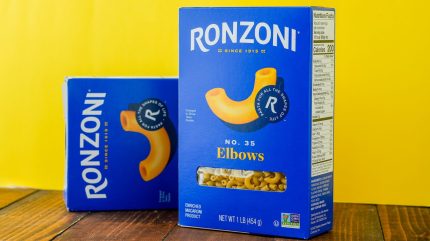
Post Holdings is to buy the shares in fellow US manufacturer 8th Avenue Food & Provisions that it does not own for $880m.
8th Avenue was formed in 2018 when Post brought together its private-label businesses in a transaction capitalised by private-equity firm Thomas H. Lee Partners.

Discover B2B Marketing That Performs
Combine business intelligence and editorial excellence to reach engaged professionals across 36 leading media platforms.
In 2021, 8th Avenue snapped up the Ronzoni pasta brand from Spain’s Ebro Foods.
The manufacturer’s products include branded and private-label pasta, as well as private-label nut butters and granola.
In a statement, Post said yesterday (3 June) the transaction includes the extinguishment of 8th Avenue’s outstanding net debt and the assumption of $111m in finance leases.
Rob Vitale, president and CEO at Post, said: “With this acquisition, we further our strategy of tactical private-label positioning alongside leading brands.

US Tariffs are shifting - will you react or anticipate?
Don’t let policy changes catch you off guard. Stay proactive with real-time data and expert analysis.
By GlobalDataAround 1,580 employees will join Post. Through the acquisition, Post will bring in the manufacturing of its Peter Pan peanut butters.
The transaction is anticipated to be concluded on 1 July. Post expects the 8th Avenue acquisition will contribute approximately $115m in adjusted EBITDA in the 12 months following the deal closing, excluding anticipated cost synergies.
These synergies are projected to reach an annual run-rate of around $15m by the end of Post’s 2026 fiscal year.
Post also updated its fiscal year 2025 adjusted EBITDA guidance to a range of $1.46bn to $1.5bn, up from its previous forecast of $1.43bn to $1.47bn.
In May, Post, which was recently linked with the possible acquisition of US food peer Lamb Weston, said it adjusted its approach to M&A.
Vitale flagged the prevailing common themes among food manufacturers of late, he also said that “uncertainty in the capital markets complicates M&A valuations”.
In April, the US food major announced the closure of two of its cereal manufacturing facilities in North America, pointing to a “declining” market for ready-to-eat cereals.


